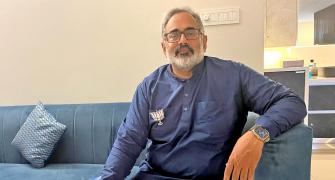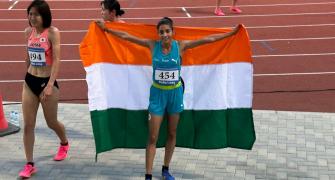The hypothesis, outlined this week in The Lancet medical journal, suggests that the infected cattle feed came from the Indian subcontinent, where bodies sometimes are ceremonially thrown into the Ganges river.
Indian experts not connected with the research exposed weaknesses in the theory, but agreed it should be investigated.
The cause of the original case or cases of mad cow disease, or bovine spongiform encephalopathy, is unknown.
Threat of agro-terrorism is real
It belongs to a class of illnesses called transmissible spongiform encephalopathies, or TSEs. A handful of TSEs are found in humans, including kuru, alper's disease and creutzfeldt-jakob disease, or CJD.
However, a pair of British scientists now propose the origin may be the bones of people infected with classical CJD, which they theorise ended up in cattle feed imported from South Asia.
Britain imported hundreds of thousands of tonnes of whole bones, crushed bones and carcass parts to be used for fertiliser and animal feed during the 1960s and 1970s. Nearly half of that came from Bangladesh, India and Pakistan, said the scientists, led by Alan Colchester, a professor of neuroscience at the University of Kent in England.
"In India and Pakistan, gathering large bones and carcasses from the land and from rivers has long been an important local trade for peasants," the scientists wrote.
"Collectors encounter considerable quantities of human as well as animal remains as a result of religious customs."
UK sent 'mad cow blood' to India
Hindus
"The ideal is for the body to be burned, but most people cannot afford enough wood for a full cremation ... Many complete corpses are thrown into the river," the scientists said, adding that the inclusion of human remains in animal bone material exported from the Indian subcontinent has been documented.
Britain was the main recipient of animal by-products exported from India and Pakistan during the relevant period and was also a leader in feeding meat and bonemeal to calves, they noted.
Finally, the similarities between the strains mad cow disease, classical CJD and variant CJD - are sufficiently close to support the theory of a link among them, the authors argue.
"We do not claim that our theory is proved, but it unquestionably warrants further investigation," the scientists wrote.
Indian neuroscientists Susarla Shankar and P. Satishchandra of the National institute of mental health and neurosciences in Bangalore, India, said they agreed the theory needs to be followed up, but urged caution.
"Scientists must proceed cautiously when hypothesising about a disease that has such wide geographical, cultural and religious implications," the pair wrote in a critique published in the journal.
Relatives of people who die of suspected CJD are persuaded to bury their dead or cremate them, the two said. In most hospital-related deaths, bodies are not taken to Varanasi, the holy city on the banks of the Ganges, but cremated or buried nearer to home.
"Even in Varanasi, most Hindus do not put half-burnt bodies into the river," they wrote, adding that if bodies found in the Ganges did have CJD, there should have been a major epidemic of the disease in north India.
"Facts to support or refute their hypothesis now need to be gathered with urgency and great care," the Indian scientists said.








